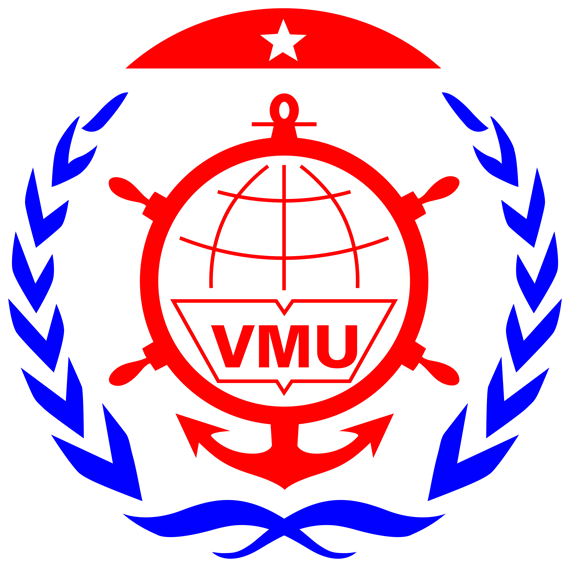1. Introduction
|
Program title: |
Bachelor of Heat and Refrigeration Engineering |
|
Graduation degree: |
Bachelor's degree |
|
Study model: |
Full-time |
|
Total credits: |
139 |
|
Used language: |
Vietnamese |
|
Training duration: |
4 years (8 semesters) |
|
Responsible Faculty: |
School of Mechanical Engineering |
|
Website: |
|
|
Address: |
Room 701, 7th floor A6 Building, Vietnam Maritime University 484 Lach Tray - Le Chan - Hai Phong |
Refrigeration and Air Conditioning Engineering plays a crucial role in the development and application of mechanical and energy systems to meet industrial, commercial, and residential demands while ensuring environmental sustainability. The undergraduate program in this field is designed to equip students with in-depth knowledge of mechanics, thermodynamics, air conditioning technology, refrigeration systems, and advanced energy solutions.
The primary goal of the program is to train highly skilled professionals capable of designing, implementing, and operating thermal and refrigeration systems across various industries. Graduates will not only have a strong theoretical foundation but also be equipped with practical skills, creative thinking, and adaptability to modern work environments.
The curriculum covers a wide range of subjects, from fundamental sciences to specialized engineering knowledge, ensuring that students can analyze, design, evaluate, and operate refrigeration and HVAC (Heating, Ventilation, and Air Conditioning) systems effectively. In addition to technical expertise, students will develop essential soft skills such as teamwork, communication, critical thinking, and the ability to adapt to both domestic and international business environments.
Upon graduation, students can pursue diverse career opportunities, including designing and installing HVAC systems, operating and maintaining thermal and refrigeration systems in industrial facilities and buildings, teaching at technical institutions, or working in technical inspection and regulatory agencies. With a solid academic background and strong practical skills, graduates of the Refrigeration and Air Conditioning Engineering program will be well-prepared to compete in both national and international job markets.The Bachelor of Information Technology program at Vietnam Maritime University offers a comprehensive education that prepares students for successful careers in the IT industry. With a focus on both theoretical knowledge and practical skills, graduates are well-equipped to meet the challenges of the modern technological landscape.
2. Curriculum
The Bachelor of Refrigeration and Air Conditioning Engineering program is structured into eight semesters, integrating theoretical knowledge with practical applications. The curriculum is designed to equip students with fundamental engineering principles, specialized technical expertise, and hands-on training essential for professional practice in the field of refrigeration and air conditioning engineering.
In Semester I, students acquire foundational knowledge in core subjects such as Introduction to Engineering, Calculus, and Physics 1, which provide essential analytical and problem-solving skills. General Law introduces fundamental legal concepts, while Technical Chemistry explores the chemical principles relevant to engineering applications. Students may also select elective courses, such as Environmental Protection and Sustainability and Soft Skills 1, to enhance their environmental awareness and communication abilities.
Semester II builds upon this foundation with courses such as Marxist-Leninist Philosophy, Descriptive Geometry & Technical Drawing, and Theoretical Mechanics, which develop spatial visualization, technical drawing, and mechanical problem-solving skills. Industrial Electricity and Heat Engineering provide essential knowledge of electrical systems and thermodynamics, which are fundamental to refrigeration engineering. Elective options include Basic English 1 and Office Informatics, which strengthen language proficiency and digital literacy.
In Semester III, students engage with more advanced topics, including Political Economy, Machine Theory, and Strength of Materials, which examine the principles of economic systems, mechanical motion, and material behavior under stress. Mechanical Drawing & CAD enhances technical design competencies, while Engineering Materials and Automatic Control Engineering introduce students to material selection and system automation. Elective courses, such as Basic English 2 and Business Management, provide opportunities for interdisciplinary learning.
Semester IV continues the progression into specialized topics, with courses such as Scientific Socialism, Machine Design Fundamentals, Tolerances & Measurement Techniques, and Mechanical Processing Technology. Heat Transfer builds upon thermodynamic principles, focusing on energy exchange processes, while Basic English 3 supports language development for technical communication.
In Semester V, students develop practical engineering skills through Ho Chi Minh’s Ideology, Machine Design Project, and Manufacturing Technology, which emphasize design application and production processes. Applied Mathematics and Heat Exchange Equipment further strengthen analytical skills, while Mechanical Engineering Internship provides hands-on industry experience. Elective courses, such as Internal Combustion Engines and Finite Element Method Applications, enable students to specialize in areas of interest.
Semester VI introduces advanced engineering applications, including Vietnamese Communist Party History, CAD/CAM & CNC Technology, and Applied Hydraulics & Pneumatics, which explore automated manufacturing and control systems. Refrigeration Engineering and Drying Technology address core industry applications. Elective courses, such as Piping Systems & Equipment and PLC Programming, offer further technical specialization.
In Semester VII, students engage with system-level engineering through courses such as Thermal Power Plants, Air Conditioning Systems, Ventilation Engineering, and Thermal System Optimization, which emphasize energy efficiency and system integration. Elective courses, including Refrigeration System Installation & Maintenance, Entrepreneurship, and Soft Skills 2, provide additional professional development opportunities.
The final semester focuses on experiential learning and capstone projects. Students participate in a Manufacturing Internship, gaining practical industry experience, and may choose between a Graduation Project or specialized coursework in Heating System Design, Refrigeration System Design, and Air Conditioning System Design.
By the completion of the program, graduates will have developed a comprehensive understanding of refrigeration and air conditioning engineering, enabling them to pursue careers in system design, installation, maintenance, and optimization. The curriculum is designed to ensure that students are well-equipped with both technical expertise and professional skills, preparing them for the demands of the industry.
